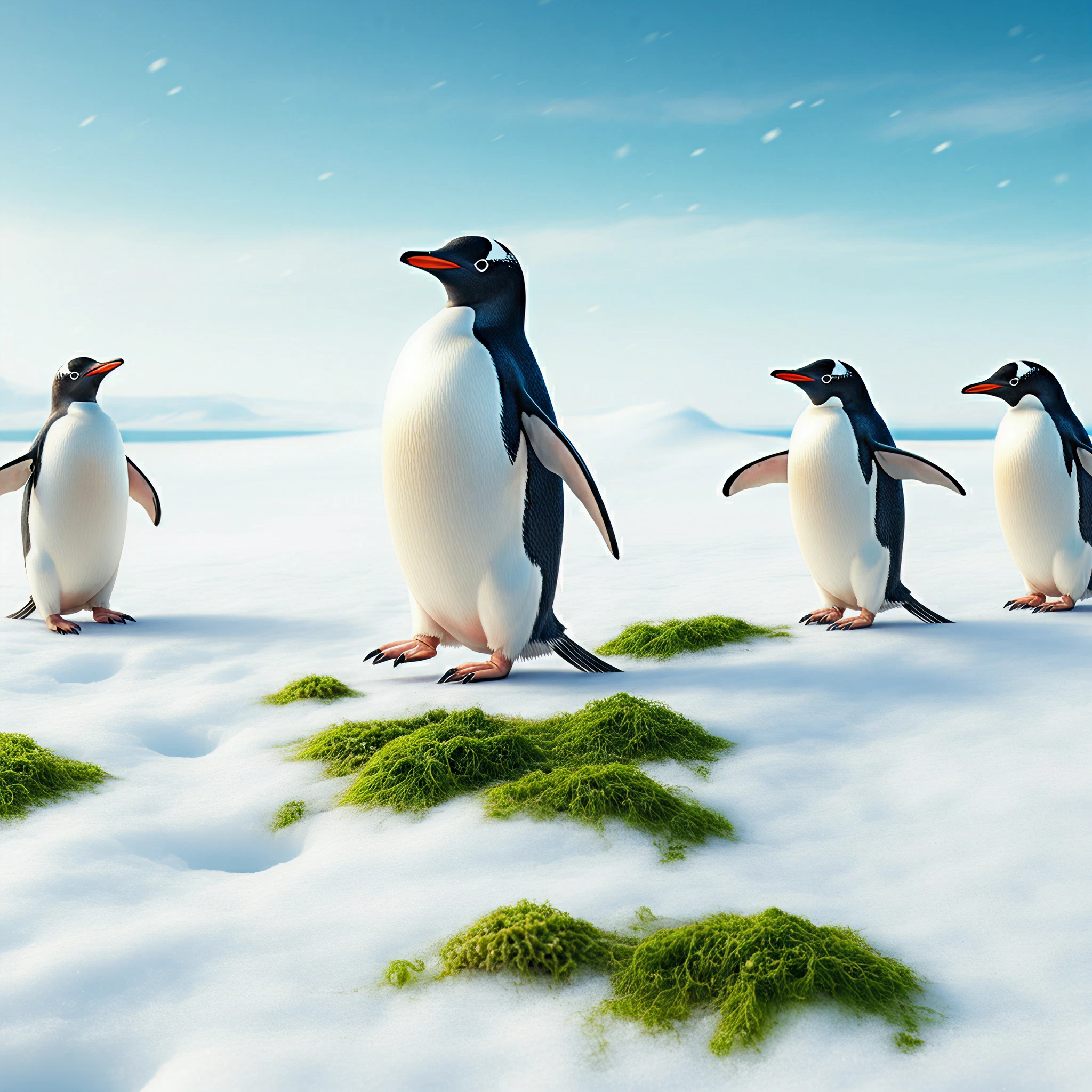When we think of penguins, the typical image that comes to mind is their waddling charm, icy habitats, and quirky behaviors. However, these fascinating creatures are silently playing an unexpected role in fighting climate change, and it all comes down to their poop. Yes, penguin guano is more than just a by-product of their fish-heavy diet; it’s a little-known hero in the ecosystem’s battle against carbon emissions.
Penguins and the science of guano
Penguin poop, or guano, is no ordinary waste. Its unique properties come from the penguins’ diet of fish and krill, which are rich in nitrogen. This nitrogen is broken down into ammonia, a natural fertilizer that carries some fascinating ecological effects. When released into the surrounding environment, ammonia doesn’t just stay idle; it helps fertilize the land and waters surrounding penguin colonies, boosting ecosystems in surprising ways.
Researchers studying penguin colonies in Antarctica found that the ammonia released from their guano significantly increases the air’s ammonia concentration, sometimes by as much as 1,000 times more than normal levels. This is particularly remarkable because it activates a chain reaction that brings tremendous benefits to the environment.
Fertilization and phytoplankton magic
When penguin guano enriches the soil or water, it boosts the growth of phytoplankton, tiny aquatic organisms that serve as the foundation of many marine ecosystems. Phytoplankton are more than just food for marine life; they are powerful agents in absorbing carbon dioxide from the atmosphere.
These micro-organisms thrive on the nutrients provided by guano, photosynthesize, and act as carbon sponges. This process directly pulls CO2 out of the air, a critical function given that reducing atmospheric carbon dioxide is key to addressing climate change. By supporting the growth of phytoplankton, penguins indirectly contribute to the sequestration of climate-warming gases.
The biogeochemical cycle and the role of DMS
This complex interaction between penguin poop, phytoplankton growth, and carbon absorption is part of a broader biogeochemical cycle. One fascinating aspect of this cycle is the production of dimethylsulfide (DMS), a sulfur compound released when phytoplankton thrive. And why is DMS important? It plays a role in cloud formation by providing aerosol particles for water vapor to condense on.
Clouds formed in this manner have a cooling effect on the Earth’s surface and help maintain sea ice cover, especially in polar regions. This means penguin colonies contribute to natural cooling processes, creating a localized promotion of environmental health.
Exciting research and future possibilities
While the current understanding of penguin guano’s ecological role is impressive, researchers emphasize that the full scale of its impact on global climate is still being investigated. Recent studies, such as those published in Communications Earth & Environment, reveal promising results, highlighting how ammonia from penguin guano helps stabilize local climates. More in-depth studies could reveal how this small but mighty contribution scales up globally.
Understanding and safeguarding penguin populations become even more critical in light of this research. These waddling climate warriors depend on stable ice environments and healthy marine ecosystems, both of which are under increasing threat due to global warming. Protecting their habitats could amplify their natural contribution to carbon reduction and environmental cooling.
Why understanding penguins matters
Penguins, seemingly simple creatures, remind us of the intricate connections within our natural world. From fertilizing ecosystems to boosting phytoplankton and contributing to cloud formation, their guano is a vital ingredient in nature’s climate toolkit.
Protecting these fascinating birds isn’t just about preserving a beloved species; it’s a step toward bolstering our planet’s resilience against climate change. The next time you see a penguin or think about their habitats, remember that even their poop plays a role in securing a better future for all of us.








